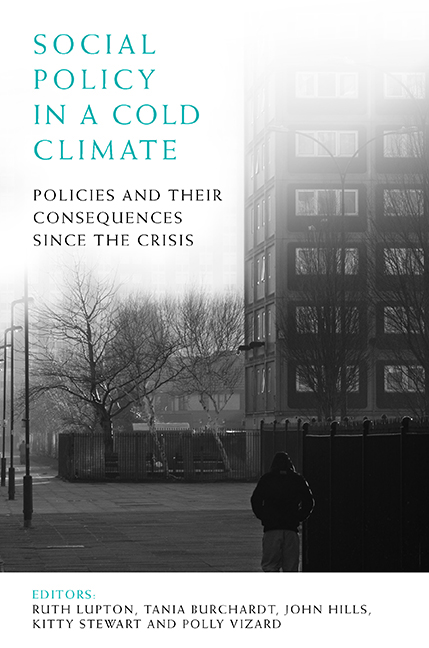Three - Young children
Published online by Cambridge University Press: 01 September 2022
Summary
The situation on the eve of the crisis
Until 1997, early childhood sat on the periphery of government concern in the UK. With the exception of health check-ups and universal Child Benefit, the state largely stepped out of a baby’s life after birth, and only stepped back in when the child arrived at primary school more than four years later. While some inner-city local authorities provided free nursery education, for the most part nurseries, playgroups and toddler groups were organised by the voluntary or independent sector. Maternity leave provision was among the least generous in Europe, and state spending on childcare almost non-existent.
By 2007 the landscape for young families looked very different. Investment in early childhood had been a key feature of the Labour administration for a decade, promoted by a constellation of Labour politicians because it promised to further a number of policy goals at once. Centre stage was the goal of eradicating child poverty in 20 years, which required both higher family incomes in the immediate term and a focus on early child development, with an eye on giving the next generation of parents a fighting chance of non-poverty wages. Policies that made it easier and more financially viable for mothers (and fathers) to combine work and family responsibilities were also recognised to be key to furthering growth, promoting gender equality and reducing gender pay gaps.
Between 1997 and 2007 spending on cash benefits for families with children in the UK nearly doubled. Most of the increase came from the expansion of targeted in-work benefits under the tax credit system, but benefits to out-of-work families with children were also made more generous. Poverty fell steeply for some household types, and especially for children living with a lone parent working part time (Stewart, 2009). Poverty also fell much more quickly in families with a child under five than for those with older children, reflecting a series of changes to benefits favouring these households: Income Support allowances for children under 11 were increased in line with those for older children, and there were new benefits for babies, including the near-universal baby tax credit and the £500 Sure Start Maternity Grant for low-income families (Stewart, 2013).
- Type
- Chapter
- Information
- Social Policy in a Cold ClimatePolicies and their Consequences since the Crisis, pp. 35 - 58Publisher: Bristol University PressPrint publication year: 2016

